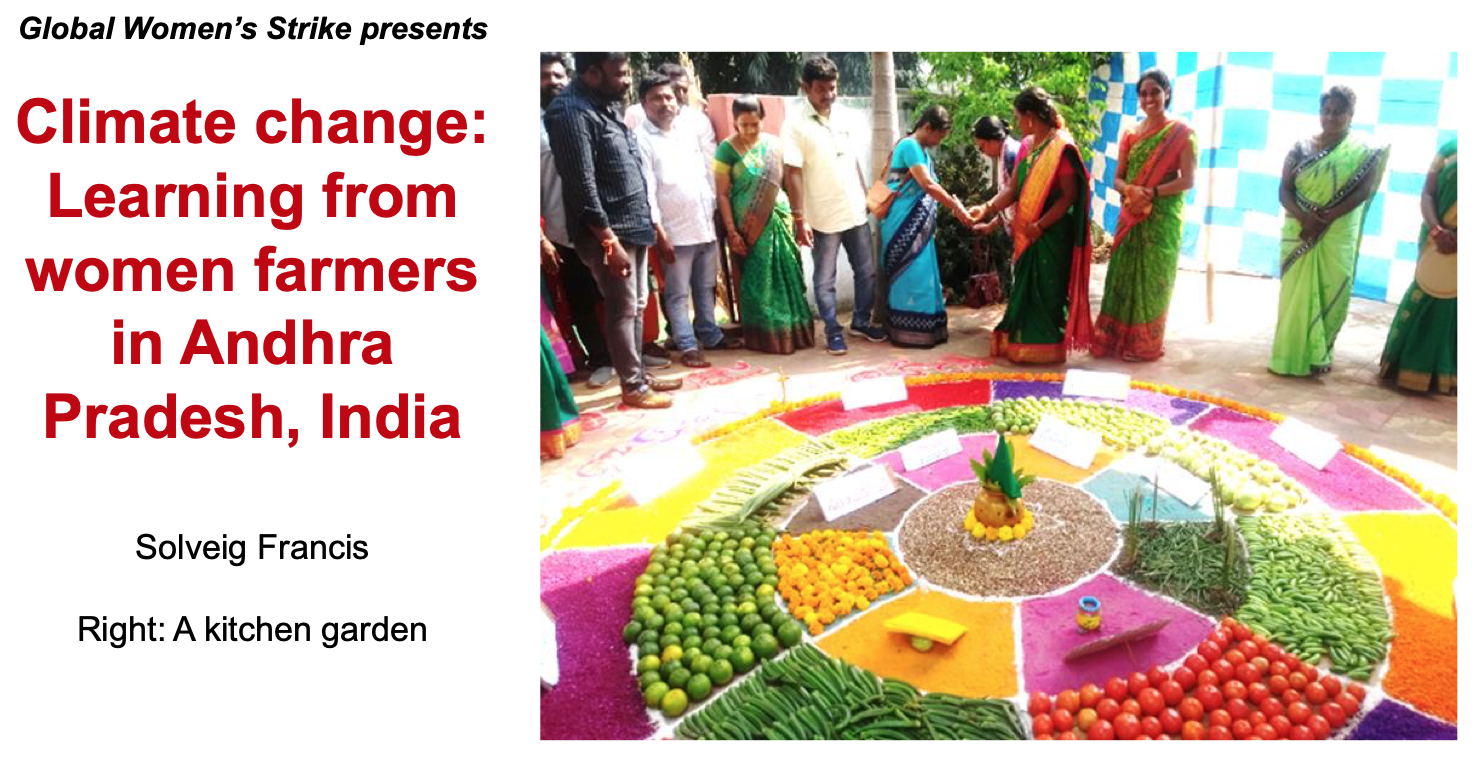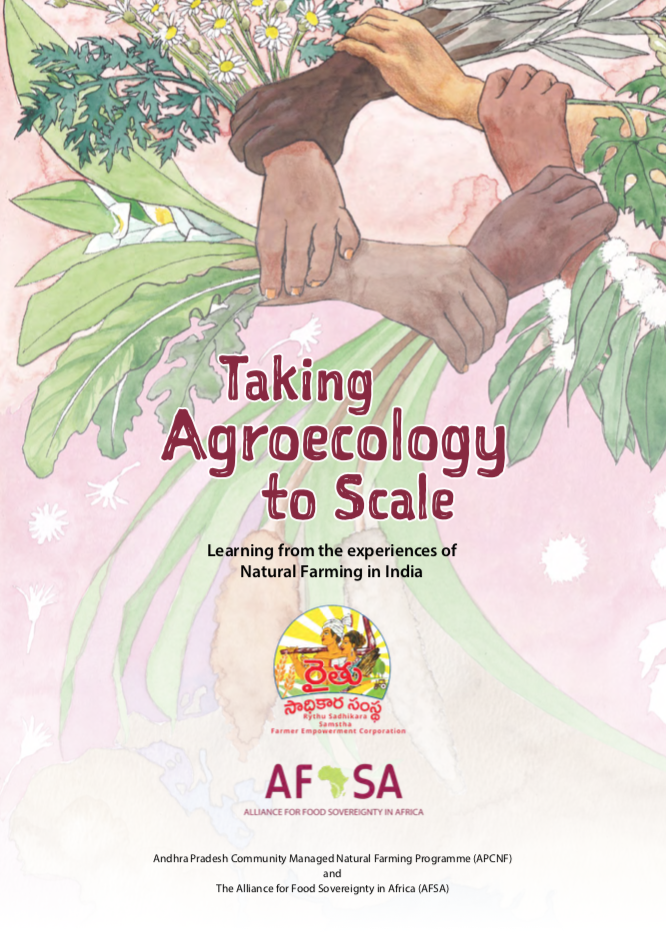As mothers, farmers and farm workers, land and human rights’ defenders, women do most of the work of feeding (starting with breastfeeding) and protecting families and communities, the soil and the environment. For doing this fundamental caring work of society, unwaged and low-waged, we are impoverished and denied basic rights, including to the land we work.
Click below to select a topic:
In the process of regenerating the land, women are transforming their families’ health, increasing their incomes, and addressing biodiversity loss, water scarcity, pollution, and climate change. Andhra Pradesh (AP) Community Managed Natural Farming, which is backed by the State of AP, is the largest transition to agroecology in the world. Their True Cost Accounting measures social capital: collective action, trust and support, community cohesion (including confronting domestic violence). They are working to make available their effective climate resilient methods to other regions and cultures.
Scaling up internationally is crucial. A care income for all natural farmers would empower such movements, encourage all genders to contribute and to refuse work that pollutes. The subsidies now paid to poison soil, water and air, must be redirected to caring for people and the planet. This must start with the Global South and working-class communities everywhere, especially Indigenous and other people of colour, who are hardest hit by the climate emergency.
Watch our 2024 and 2023 sessions at the Oxford Real Farming Conference.
Watch our workshop with our sisters from AP Community Managed Natural Farming, Protection International in Thailand and others.
Women Feed the World, 4 January 2024
Speakers: Swati Renduchintala, Meerabi Chunduru, Vijay Kumar and Selma James. Chair: Jyoti Fernandes
Care Income to Protect the Land, the People and the Natural World, 4 January 2023
Speakers: Selma James, Swati Renduchintala, Pranom Somwong and Dee Woods. Chair: Jyoti Fernandez
Building a Global Peasants' Movement: 10 Years of Landworkers’ Alliance and 30 Years of La Via Campesina, 5 January 2024
Jyoti Fernandes, Morgan Ody, Paola Gioia and Chukki Nanjundaswamy
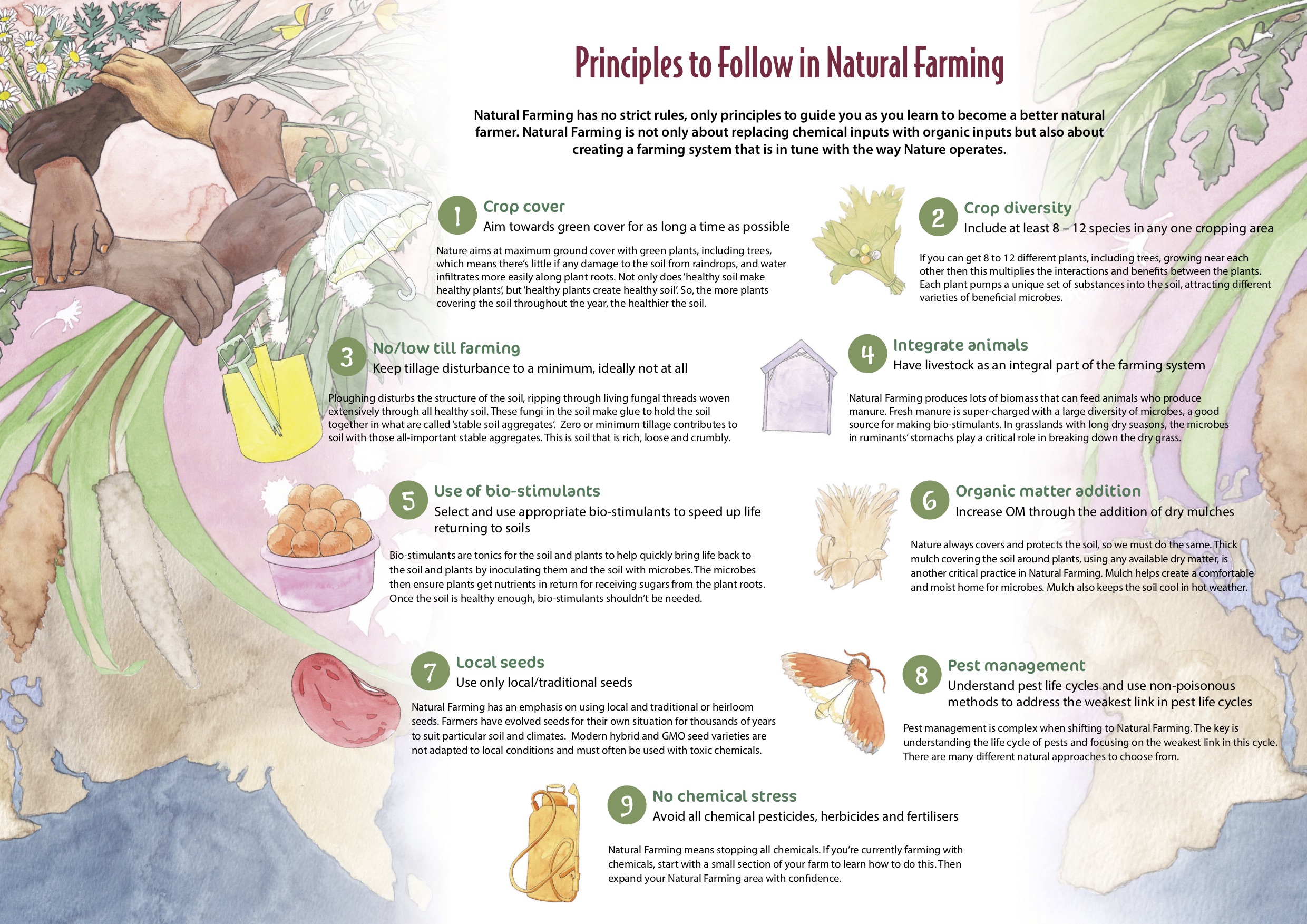
Interview with Solveig Francis during the GWS visit to Andhra Pradesh to meet the women’s Self-Help Groups, November 2022
Nature’s Solutions as National Policy: Illuminating seminar with soil microbiologist Walter Jehne, RySS's vice-chair Vijay Kumar, and US Congresswoman Chellie Pingree. How conventional chemical farming drives climate change and natural farming is crucial to regenerating the soil and the climate.
Zero Budget Natural Farming, now called Community Managed Natural Farming, in the drought-prone regions of Andhra Pradesh is helping soils to produce more, offering smallholder farmers decent livelihoods.
How Women Farmers Are Helping - spearheading the transition to natural farming in Andhar Pradesh.
AP Community Managed Natural Farming is working with the Alliance for Food Sovereignty in Africa (AFSA) to scale up natural farming across the continent.
The Community Women Human Rights Defenders Collective, part of the Global Women’s Strike network in Thailand, brings together women from 19 different struggles. They include Indigenous women, migrant and refugee women, disabled women, urban women from the slums, women farmers, women from the conflict zone in the Deep South, sex workers, garment workers, and women fighting against the destruction of natural resources and the natural world. All work to protect life and livelihoods. The Collective campaigns for a Care Income to be included in Thailand's Constitution, and an end to poverty, inequality and State oppression in all forms. More info here

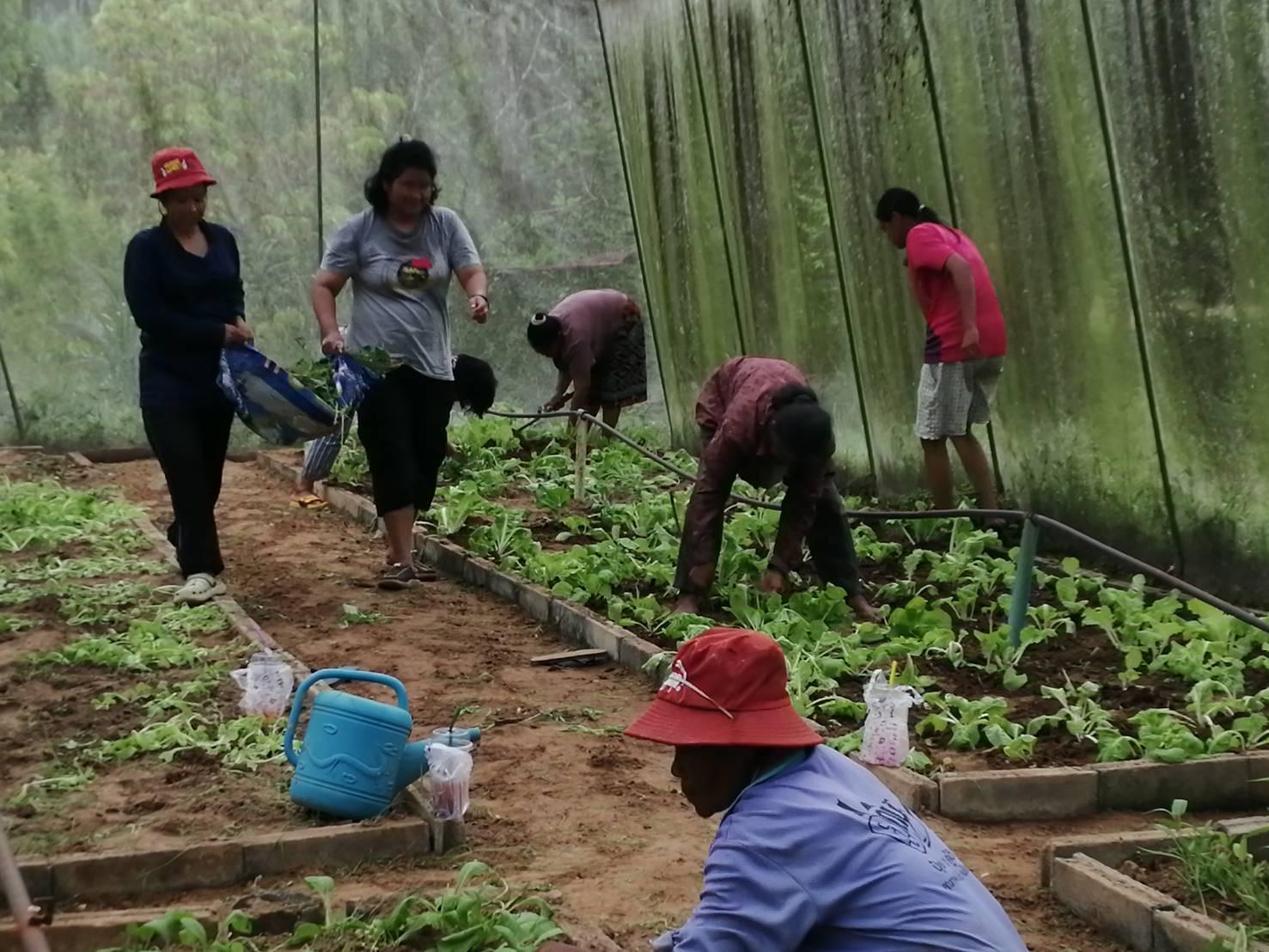
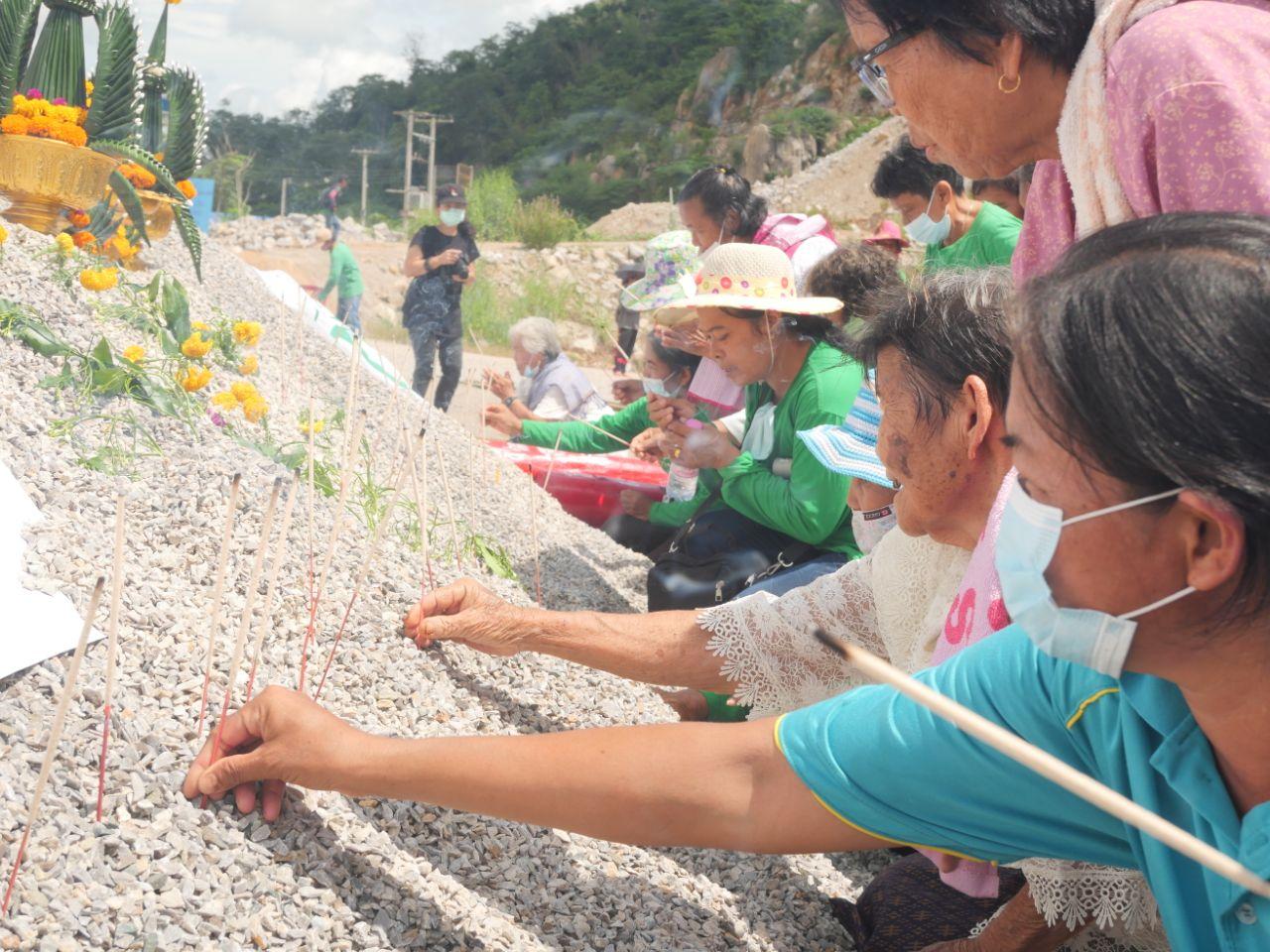
Event: London Land Justice Fair, 21 July, 12-6pm
We’ll be running a stall, and a workshop on land use in the women-led natural farming movement in Andhra Pradesh, India. All welcome!
Read MoreNatural Growing in India – our article in Allotment Gardener newsletter
Dear Friends, Please see article below by food growers in the Global Women’s Strike network, inspired by the movement of women farmers in Andhra Pradesh spreading natural farming through their Self-Help Groups. More information on this growing movement here. Natural Growing in India We are allotmentgrowers/gardeners in London and Suffolk,growing food withoutchemicals for some time.We have been inspired bythe grassroots women’sself-help farmingmovement in AndhraPradesh, India.Since 2016, Andhra Pradesh Community Managed Natural Farming has been spearheaded by women groups that…
Read MoreWatch our workshop with our sisters from Andhra Pradesh Community Managed Natural Farming
Speakers: Meerabi Chunduru, Swati Renduchintala, Vijay Kumar, Selma James. Chair: Jyoti Fernandes In the last 20 years, in Andhra Pradesh, India, grassroots women in a secular movement of self-help groups are collectively transforming the food they grow, their families’ health, and increasing their income. They are the largest transition to agroecology in the world, simultaneously…
Read MoreEvent: Theft from Africa – Workshop for Black History Month.
Women of Colour GWS tell the story of what the British and other empires stole from the African continent and its people. According to research, £7.5 trillion is owed by Britain to its former colonies for slavery. Is this an underestimate and if so what is the true cost of the theft of people and resources…
Read MoreIn the media: Climate change lessons from Andhra Pradesh, Camden New Journal.
The state of Andhra Pradesh in India has seen a transformation to natural farming which has been made possible by women organizing, writes Solveig Francis. They have created thousands of self-help organizations across more than 3,000 villages. Since 2016 they have spearheaded an agricultural, economic and social transformation through Community Managed Natural Farming: agroecology based on no/low tilling,…
Read MoreEvent: Climate change – learning from women farmers in Andhra Pradesh, India.
A Global Women’s Strike event for South India Heritage Month. Thursday 20 July 2023, 6-8pm, Swiss Cottage Library, 88 Avenue Rd, London NW3 3HA. ALL WELCOME. What we saw when we visited the women’s self-help groups transforming their communities with natural farming. We in the city must know more about how our food is grown…
Read MoreTaking Agroecology to scale: Learning from the experiences of Natural Farming in India
Learning from the experiences of Natural Farming in India, this new publication has been compiled by the Alliance for food sovereignty in Africa. Download a copy of it for free here below.
Read MoreEvent summary: GWS at XR, The Big One.
Together with 60,000, we took part in XR’s The Big One, four days of action 21-24 April, around Parliament to force the UK government to act on the climate emergency. Day One: Unite to Survive – “Women Care” Speak Out Diverse networks of mothers, grandmothers, other carers and people with disabilities spoke out on refusing…
Read MoreGWS at XR’s The Big One, 4 days of action in Central London
Four days of action from 21 to 24 April brought together 60,000 people around Parliament to force the UK government to act on the climate emergency. On Friday – “Unite to Survive” day – diverse networks of mothers, grandmothers, other carers and people with disabilities spoke out on refusing poverty, the devaluing of caring and…
Read MoreEvent this Friday – Join the Women’s Speak Out at XR’s The Big One
Friday 21 April, 1pm, Downing Street, London SW1A 2AA. XR’s The Big One – four days of actions 21-24 April to bring together 100,000 people around Parliament to get this government to act on the climate emergency. On Friday – “Unite to Survive” day – diverse networks of mothers, grandmothers, other carers and people with disabilities will…
Read More
